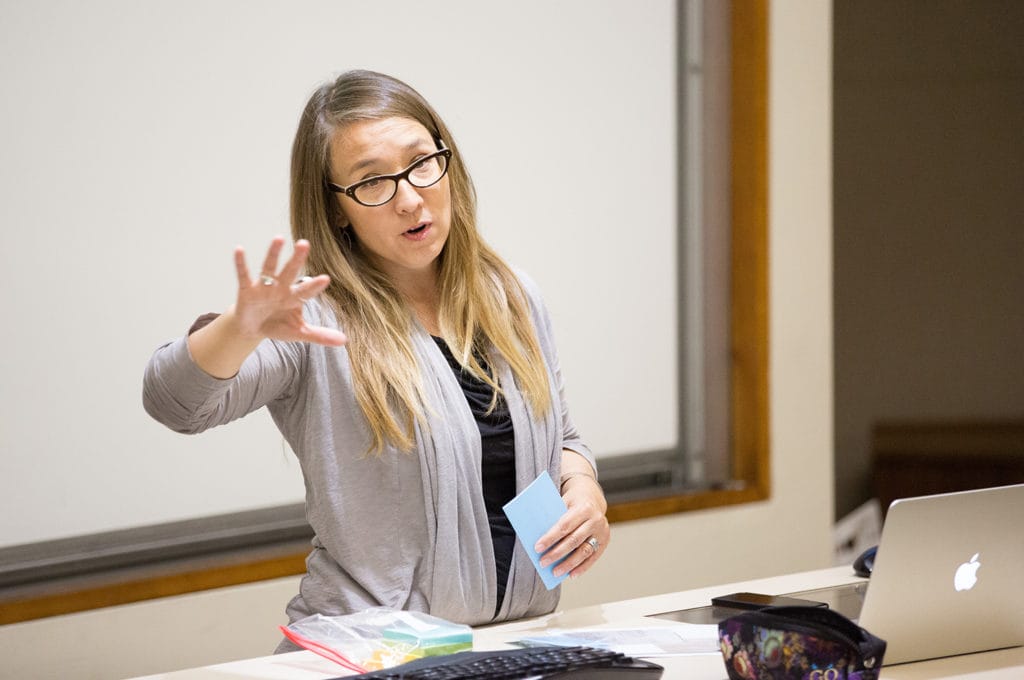Research Delves Into LAUSD Grads’ College Readiness

How many students from the Los Angeles Unified School District go on to earn college degrees?
Only one in four, according to a major new study produced by scholars from Claremont Graduate University and UCLA in collaboration with the Los Angeles Education Research Institute (LAERI).
The study, which is already drawing attention from media outlets across the Southland, including the Los Angeles Times, the Los Angeles Daily News, and KPCC radio, offers “the first comprehensive analysis of college enrollment of Los Angeles Unified School District graduates and available college readiness supports,” according to an announcement released earlier this week.
For Kyo Yamashiro, who directs CGU’s Urban Leadership doctoral program and co-led the effort that produced the two studies, this research represents a “necessary first step toward understanding patterns of college access and success, as well as the supports they have in order to get into and through college.” This research, she adds, also prompts many other questions that remain to be answered, including specific types of student support and preparation, and what kinds of supports will work best for those in need.

Key findings
As the nation’s second largest school district (the largest is New York City), LAUSD has more than 600,000 students enrolled in kindergarten through 12th grade. Although the data focuses specifically on LAUSD, Yamashiro points out that it may have wider applications.
“While our partnership is focused on supporting LAUSD with disciplined inquiry on problems of practice that we jointly identify, we also hope that the information from these studies might add a growing set of similar studies in other large, urban districts, to develop a broader, contextualized understanding of college-readiness issues,” he explained.
“And for many of the practitioner-scholar students that we teach in Urban Leadership, there may be some key implications that could inform improvements they are making in their own schools and districts around student academic preparation and college application supports, so that more students have the option to choose college when the time comes.”
Key study findings include:
- Seventy percent of 2014 L.A. Unified students enrolled in college within one year of high school graduation; college enrollment rates were similar for the classes of 2008 and 2013.
- Most college attendees persisted into a second year of college.
- However, only 25 percent of 2008 graduates had earned a college degree within six years of high school graduation (by 2014). More than two-thirds of those were four-year degrees.
Behind the Studies: A Team Effort
The creation of this study—which consists of two reports on college readiness and college enrollment—was the result of collaboration by Yamashiro, UCLA’s Meredith Phillips (who co-directed the two reports with Yamashiro), and UCLA doctoral students Carrie Miller and Thomas Jacobson. Their collaboration took place through LAERI, which is a nonprofit research organization engaged in a research-practice partnership with L.A. Unified.
Yamashiro and Phillips founded LAERI in 2011, and both new studies were made possible by a grant from the College Futures Foundation to LAERI and UCLA. The research work, which Yamashiro said took a little over a year and a half to complete, addresses the pressures and shifting landscape that many urban schools are experiencing today.
“Districts and schools are increasingly feeling pressure to look beyond just getting students over the hurdle of high school graduation,” she said. “They’re feeling the pressure to also prepare students for viable post-secondary futures. Our hope is that these studies are a step in the right direction toward identifying some areas to prioritize for improvement in addressing this pressure.”
Frances Gipson, who serves as LAUSD’s chief academic officer, is a CGU alumna (PhD, Urban Leadership, 2012) and says that LAERI has provided them with “the framework for an array of strategies we are implementing to address the needs of students, families and schools.”
Synergies between research and practice
Because educational leaders in urban landscapes face a host of specific challenges and circumstances, CGU created its Urban Leadership doctoral program, which offers innovative training designed to meet those needs for educational leaders in urban settings.
In addition to Gipson, other alumni are now serving in superintendent and other top leadership roles in school districts across Southern California, including Downey Unified, Hacienda-La Puente Unified, Hemet Unified, Montebello Unified, and Romoland Unified.
For Yamashiro, who arrived at CGU two years ago to become the program’s director, Urban Leadership is an appealing route for many education students because it “takes a unique approach to training working professionals in the field,” she explained. There is “constant reflection, tension, and synergy between research and practice.”
As in the case of her partnership with LAUSD through LAERI, that synergy she hopes will result in information that solves real-world problems that might benefit students in their educational experiences.
“The goal of our Urban Leadership work is to develop leaders who can constructively draw on research and evidence to inform their decisions and approaches,” she added.
More information about CGU’s Urban Leadership program is available online.